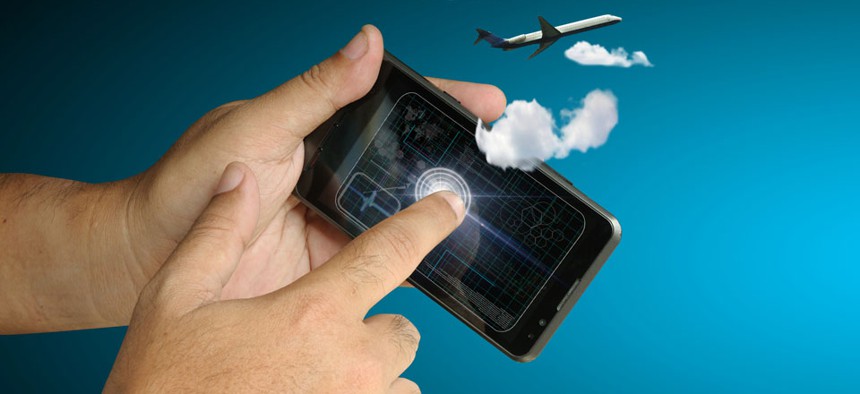In-Flight Voice Calls Could Aid Airlines More Than Passengers

Thampapon/Shutterstock.com
The service could make it easier and cheaper to contact doctors and others on the ground.
LAS VEGAS -- Airlines could benefit more than passengers from a proposed Federal Communications Commission rule that would expand the use of smartphones and tablets during flight, the CEO of a company that provides in-flight electronic services said here on Thursday.
The FCC rule would broaden the use of what amounts to small, mobile wireless towers on airplanes so passengers could use those services rather than WiFi to connect with texting and data services on their smartphones and tablets when airplanes are above 10,000 feet. The proposed rule may also allow voice calls at the airline’s discretion.
That would also make it cheaper and easier for flight crews to communicate with people and services on the ground about nonnavigation issues, said Ian Dawkins, CEO of OnAir, which provides in-flight voice and data services outside the U.S. Dawkins spoke with Nextgov following a panel discussion at the Consumer Electronics Show.
Many airlines, for example, use telemedicine systems to consult with doctors on the ground when passengers become ill. New systems could make those communications easier and cheaper, Dawkins said. They could also make it easier for flight crews to consult with specialists, whereas most existing systems just connect them with a single doctor, he said.
A better diagnosis from specialists, in turn, could reduce the number of flights that make unscheduled landings to get sick passengers to hospitals, he said.
The non-WiFi systems could also make it cheaper and easier for flight crews to record and share flight information and to process credit card purchases, he said.
OnAir offers data and, in some cases, voice services for airlines that operate outside the U.S., including British Airways. Those airlines must turn the services off before entering U.S. airspace under current FCC policy.
The idea of in-flight cellphone conversations has proved anathema to many Americans who’ve flooded comment boards saying they want airplanes to be a cell chatter free zone.
Dawkins was asked whether the U.S. aversion to voice calls in-flight amounted to a cultural difference. He said surveys conducted by OnAir customers have shown most passengers on non-U.S. carriers stated a similar aversion. When those airlines experimented with allowing voice services, however, they found only a limited number of passengers used them and generally in a nonobtrusive way.
Studies showed most in-flight phone conversations lasted two minutes or less and took place just after takeoff or just before landing, he said.
(Image via Thampapon/Shutterstock.com)
Get the Nextgov iPhone app to keep up with government technology news.






